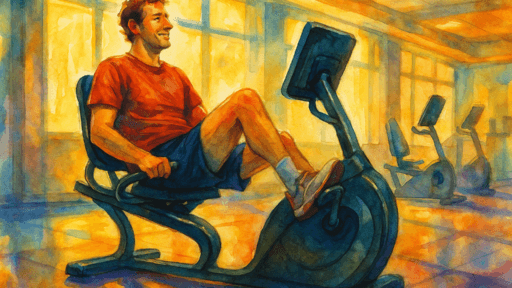“Being heard is so close to being loved that for the average person they are almost indistinguishable.”
David Augsburger
Back in high school, I truly believed that winning an argument meant getting the last word—no matter what ridiculous point I was defending. It didn’t matter if it was about who left the milk out or why The Red Hot Chili Peppers were totally overrated—if I had the last word, I felt invincible.
Of course, in hindsight, these were the tiniest of skirmishes. But to teenage me, they were grand battles. Each sarcastic comment was a carefully placed arrow in the defense of my kingdom.
Then, in the middle of one of these utterly pointless battles—likely over something crucial like the TV remote—my mom chimed in. She wasn’t yelling, she wasn’t even irritated. She just said, “Why don’t you stop trying to win and just listen for a change?”
It hit me like a sucker punch.
She didn’t say it to hurt me, though; she said it because, despite my impressive array of rebuttals and counter-arguments, I wasn’t really paying attention to anyone else. I was too busy sharpening my verbal sword, ready to jab it into the soft underbelly of my opponent’s flawed logic. And when she said that, something clicked.
I was so obsessed with being heard that I forgot how to listen. Worse, it hadn’t even crossed my mind that listening might actually be a form of love—more powerful, even, than the perfect comeback.
As the years passed, I started noticing that when people talked, it wasn’t just words—it was fears, hopes, and that weird impending doom you feel after Googling a medical symptom. And it dawned on me, as I stood there nodding: people don’t just want you to nod, they want you to get it. Like, really get it. And it’s not about offering the perfect solution (no one has those anyway), but about showing that you’re there, that you heard what they didn’t even realize they were saying.
Take my friend Pete, for example. You know Pete—every office has one. He’s the guy who can’t get through a single meeting without turning it into his personal TED Talk. “Oh, that reminds me of this project I led last quarter,” or “When I was in charge of the big account last year…” It’s like his brain has a running highlight reel of all the times he saved the day, and lucky us, he’s more than happy to share it.
At first, it’s kind of amusing. Then it’s not. Then it’s a little like being trapped on a plane next to someone who wants to tell you about their essential oil business—mildly terrifying, but inescapable. But here’s the kicker: Pete and I are actually friends outside of work. And when it’s just the two of us, grabbin a beer or talking college basketball, he’s not like that at all. No bragging, no highlight reel—just regular Pete.
So I started thinking, why is “Meeting Pete” so… extra? It’s like he’s got a split personality, and one of them wears a corporate cape and expects a standing ovation. The more I thought about it, the more I realized: Pete doesn’t get much love at work. His boss is the kind of guy who thinks praise is something you get at the dentist for flossing. Pete’s out here hustling, but he’s getting crickets from the people who should be patting him on the back. And since that validation never shows up, Pete brings it to the meetings himself, wrapped in a bow, with a side of “Did I mention I’m awesome?”
Once I figured that out, it was hard to be annoyed. Because really, Pete isn’t bragging for the fun of it—he’s out here looking for a little validation. A little “Hey, we see you” from anyone who’s paying attention. If all you knew was “Meeting Pete,” you’d probably think he was a self-absorbed windbag with a diploma in monologuing. And yeah, sometimes he is. But the Pete I know? He’s just a guy who wants to be seen, to be heard, like the rest of us.
It’s funny how we all do it, just in different ways. Some people humblebrag on social media, others tell their “I once climbed Everest” story for the hundredth time. Pete? He’s got his meetings. And after I saw him that way, his constant self-promotion started to feel a lot less annoying and a lot more like a quiet little plea. It’s not that he wants to be the hero of every story—he just wants someone to notice he’s even in the room.
And that’s the thing about being heard—it’s not about yelling louder or talking more. It’s about knowing someone is sitting there, nodding along, actually listening. It’s a feeling so close to love, it blurs the lines. Because what we’re really asking for, when we share our stories or worries or even those trivial bits about our weekend projects or latest hobby, is connection.
So, the next time someone corners you with an epic tale about a houseplant or an obscure medical procedure, don’t panic. Just listen. They might just be giving you a glimpse into the things that really matter to them.
And who knows? Maybe one day, someone will hear you out when you’re passionately debating the superiority of mustard over mayo. Because being heard isn’t about winning the argument—it’s about knowing someone is there, nodding, and loving you through it all.





